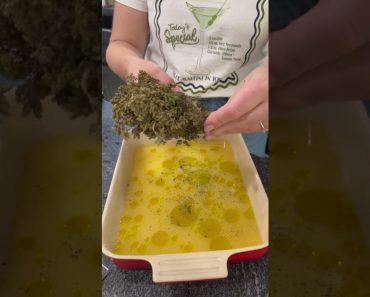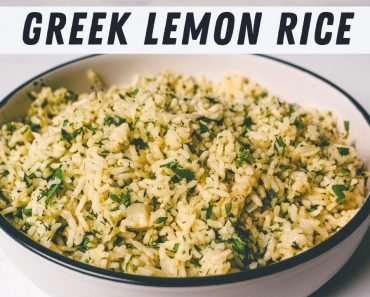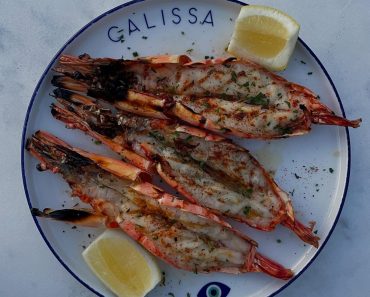On a sun-drenched hillside on the western side of Ikaria, an island in the Aegean about seven hours east of Athens, I found myself hauling crates of olives up a winding stone path, my palms aching and slick. I’m not a local resident or a professional farmworker; I was just visiting the island. Maria, the farmer I was helping, wasn’t paying me in euros. When we finished stacking the crates and my work was done, she gave me a clay bowl of warm lentils, a hunk of sourdough, and a smile that said: “You’ve earned your place at the table.”
This is how things often work on Ikaria, where the leisurely micro-economy functions, in part, through bartering. In markets, villages, and even homes tucked into the folds of its mountains, people trade firewood for childcare, cheese for fish, a haircut for a dozen eggs. Visitors aren’t relegated to the sidelines. If you arrive in Ikaria with empty pockets, an open mind, and a willingness to help, you can leave with a backpack full of herbs, handmade soap, and more than a few new friends.
What It’s Like to Live in a Barter-Based Economy
Ikaria’s residents have long tended toward bartering, a reflection of their agricultural way of life and tight-knit community. But when the island became a place of exile for communists and political dissidents following the Greek Civil War in the mid-20th century, those practices deepened into a lifeline. Mutual aid and shared land morphed from casual habits into stubborn values that have survived the evolution of the Eurozone and the global economy.
I first started to understand how it all works at the Saturday market in Raches, a sleepy mountain village on Ikaria’s western side known for its winding paths and late-night tavernas. The market isn’t a place of stalls and price tags; it’s more of a gathering. Someone was playing music. Children weaved between tables of fruit and preserves. An elderly woman exchanged two wheels of goat cheese for a sack of dried oregano and firewood. No one argued.
That’s where I met Nikos, a wiry carpenter in his 60s with hands like rope and a truck that rattled loudly. He gave me a ride back to Agios Dimitrios, his hillside village tucked into the forest above Raches.
“Visitors think it’s romantic,” he told me. “But really, it’s just about knowing your value. If you can cook, if you can help with harvest, if you can teach some language skills, you can trade.” That’s how I ended up teaching English to his niece for an hour a day in exchange for dinner and a handwoven scarf.
Later, in the mountain village of Christos Raches, where the tavernas open when the owners feel like it and clocks are more suggestion than rule, I sat with Yiannis, a shepherd. Over a plate of grilled sardines and a pitcher of homemade wine, he explained his barter agreement with the local cobbler.
“I give him milk from my goats every week,” he said. “In return, he fixes my boots. Sometimes it’s not even a direct trade. He helps my cousin with car repairs. It all circles back eventually.”
This web of exchange isn’t tracked in ledgers. It lives in memory, relationships, and trust built over time. It’s a messy life unmitigated by barcodes. One night at a panigiri, a village festival that began at sunset and spilled into dawn, I helped serve wine to elders who danced barefoot in the dust. The band played without breaks. A woman I’d met days earlier handed me a plate of goat stew. “For the help,” she said, laughing. Later, I gave her one of the portraits I’d sketched of the musicians.
Watching it unfold, I realized the barter economy isn’t just about avoiding money; it’s about resisting the kind of detachment that money can create. In Ikaria, every trade is a connection. Your worth isn’t measured by your bank account, but by what you’re willing to carry together with the people around you.
Even the way people speak about time feels different. There is no rush to complete a task or seal a deal. A meal might last hours. A casual visit can turn into an invitation to stay the night. In this way, bartering becomes more than an economic model; it’s a culture of slowing down and noticing life deeply.
How Travelers Can Participate
You won’t find curated bartering experiences on Tripadvisor. But it doesn’t take a lot of digging to find an entry point to the economy. Start with a stay at a family-run guesthouse or agro-tourism farm like To Spitaki tou Papa or Olive Tree Ikaria. Reach out ahead of time, share what you can offer (gardening, cooking, helping with the olive harvest), and you might just trade your way into a cozy room and a spot at the dinner table.
You don’t have to come with expertise in farming or carpentry. Locals are often curious about what visitors can offer, even if it’s just cooking a dish from your home country, and you can always just lend an ear. One American traveler I met stayed on the island for three months, offering childcare for a room in a stone cottage overlooking the sea.
“People think it’s old-fashioned,” she says. “But it feels like the future. Or at least a future I want to live in.”
Or you can try your hand at something totally new like beekeeping. I helped a local couple bottle honey in exchange for a bag of herbal tea and a jar of the good stuff (it was dark and wild, with notes of thyme and pine). Even if your Greek is limited to “kalimera” (good morning) and “efcharistó” (thank you), hand gestures and good faith go a long way.
A Lifestyle of Resistance in a Globalized World
“Bartering here isn’t nostalgic,” said Eleni, a midwife and herbalist who grows and trades healing salves. “It’s a response to austerity, to capitalism, to forgetting how to take care of each other.” The local economy has become a way for locals to push back against forces they see as oppressive. It’s an economic, political, and ethical stand in the modern world. Nikos, the carpenter, described it as an expression of sovereignty. “When you rely less on money,” he told me, “you rely more on your neighbor. That’s power.”
Ikaria isn’t entirely immune to the outside world. Tourism has grown steadily over the past decade. The island has the internet, credit cards, and cafes making drinks with oat milk. Younger Ikarians often leave the island for cities elsewhere, drawn by wages and opportunities. Some residents worry the barter economy could fade away.
But it hasn’t vanished; it’s adapted. At a workshop hosted by a local women’s cooperative, where travelers and locals made soap from goat milk and wild herbs, the group’s leader, Sofia, told me they’ve started experimenting with a digital barter platform for the island “like Airbnb, but for trade.”
Others believe the barter system, rooted in care rather than capital, will help Ikaria endure.
“Globalization makes everything faster,” Eleni told me. “We make things slower. That’s not a flaw. That’s our offer to the world.”
As people all over the globe reconsider the impacts of modern lifestyles on their health and wellbeing, Ikaria has developed a reputation as a Blue Zone, where one in three people lives past 90. Researchers point to diet (olive oil), exercise (all that farming), and low stress (lots of naps). But spend enough time here, and you begin to see that the real longevity secret might be social connection.
“I know who grew my tomatoes,” Maria, the farmer, said as we sat over lunch, dipping bread in oil pressed from her neighbor’s trees. “I know who taught my children. When I am old, someone will know me, and that matters.”
No one here is making grand claims that bartering will help people live longer or save the world. But as a traveler, stepping into Ikaria’s rhythm, I felt like I was breathing more deeply than I had in months.
On my last day, I visited a coastal cafe run by a musician named Theo. He makes espresso in the mornings and plays the bouzouki at night. I didn’t have enough cash for a full meal, so I helped write a menu for the cafe in English.
Over wine, he told me, “In Ikaria, if you come with an open heart, you’ll never go hungry.” And he was right. I ate well, and I left the island with a bag bulging with souvenirs I’d earned, not bought. I also felt less tethered to my phone or the transactional churn of modern life. I felt richer.
Taiwo Adepetun is a contributor to Thrillist.







